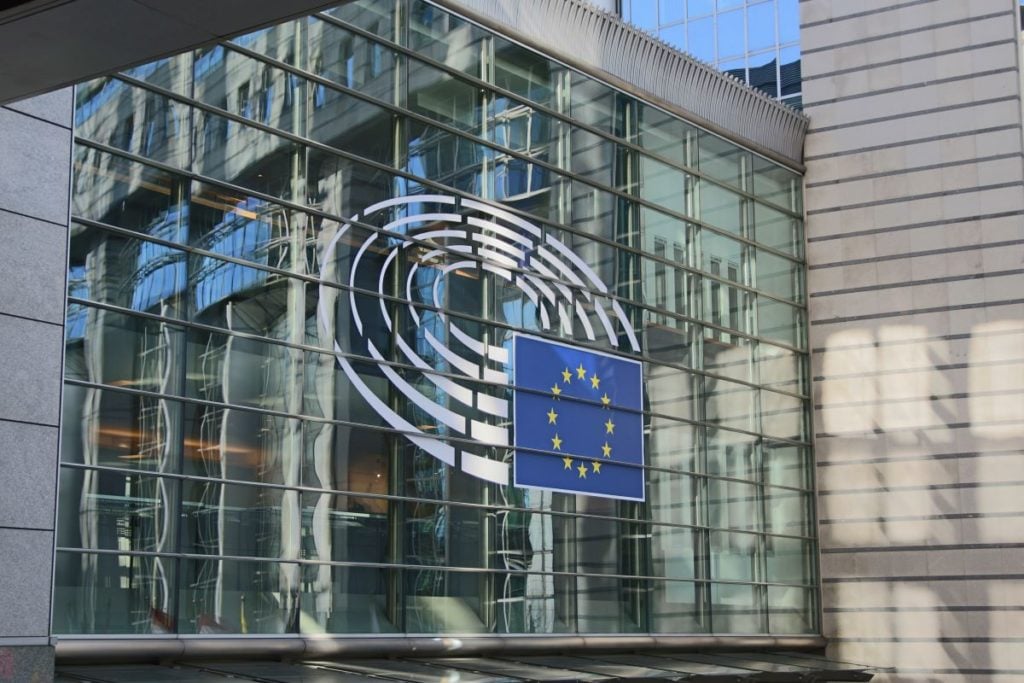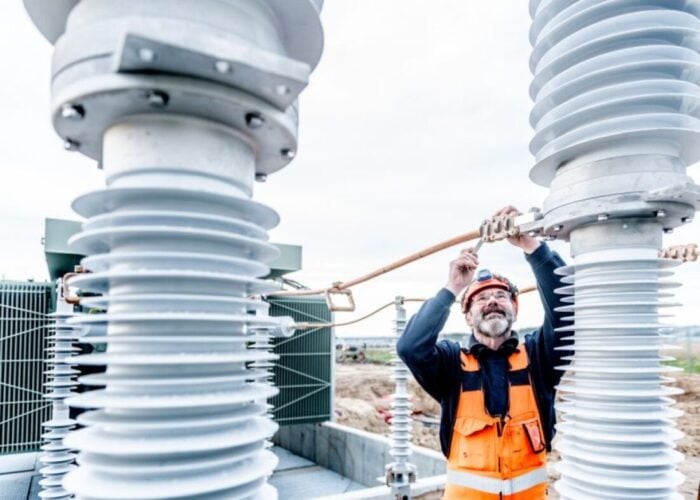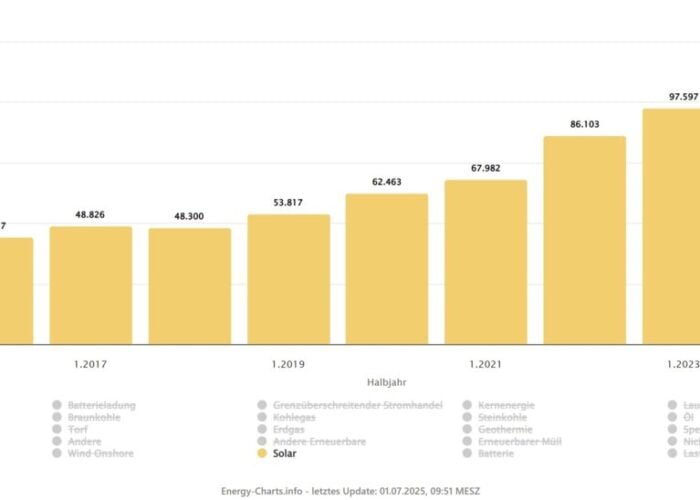
The European Council and European Parliament have reached a provisional agreement to reform the EU’s electricity market design, which could bring an end to nine months of negotiations regarding the future of the European energy mix.
The European Council, the body comprised of representatives of EU members, proposed the reforms in March, aiming to increase the adoption of renewable power in the continent.
Unlock unlimited access for 12 whole months of distinctive global analysis
Photovoltaics International is now included.
- Regular insight and analysis of the industry’s biggest developments
- In-depth interviews with the industry’s leading figures
- Unlimited digital access to the PV Tech Power journal catalogue
- Unlimited digital access to the Photovoltaics International journal catalogue
- Access to more than 1,000 technical papers
- Discounts on Solar Media’s portfolio of events, in-person and virtual
“This deal is great news, as it will help us reduce even more the EU’s dependence on Russian gas and boost fossil-free energy to cut greenhouse gas emission,” said Teresa Ribera, Spanish third vice-president of the government and minister for the ecological transition and the demographic challenge.
The council aimed to make changes to a number of pieces of legislation, including the Electricity Regulation, the Electricity Directive and the Regulation on Wholesale Energy Market Integrity and Transparency (REMIT) Regulation, and has been engaged in negotiations with the European Parliament, the EU’s law-making body whose members are directly elected by EU voters, for close to a year now.
“We also managed to secure flexibility in the way member states can design their roadmap to support the deployment of cleaner energies,” said Morten Helveg, a Danish MEP and member of Renew Europe, part of the European Parliament. Both the council and parliament are keen to bring negotiations to a close, and will be eager to start implementing the agreed-upon changes.
“After all efforts made, the deal represents a real boost for energy security, price stability and decarbonisation,” added Helveg.
Stabilising prices and ensuring viability
Among the provisional agreements is the power for individual national governments to provide direct financial support for power purchase agreements (PPAs) signed within their borders, raising the prospect of renewable generation facilities selling power directly to national governments. By enabling governments to act as potential customers for electricity generated from renewable sources, new clean power generation facilities could be considered more financially viable.
“Business will benefit from, and be encouraged to sign, PPAs, backed by national guarantees,” said Naomi Chevillard, head of regulatory affairs at SolarPower Europe, the trade body that has been pushing for the EU to adopt many of the council’s proposed reforms.
“For the first-time, citizens have an enshrined right to energy sharing,” added Chevillard. “Europeans are now entitled to sell their excess solar to their neighbour or buy solar in their community at a lower cost. With energy sharing, we can support the grid while bringing solar to the homes which don’t have solar panels yet.
The bodies also agreed to terms set out by the council regarding contracts for difference, with national governments now required to use contracts for difference with fixed price ceilings and floors when they invest in new power generation facilities. The fixed prices aim to minimise the fluctuations in electricity price that are more prevalent in renewable power generation than fossil fuels, and the council hopes that this measure will also make new renewable power projects a more attractive investment for financiers.
The council and parliament also gave the former and the European Commission the power to declare a “crisis” in energy prices, which would enable the council and parliament to lower electricity prices for what they called “vulnerable and disadvantaged customers” in Europe. The price of electricity has increased dramatically since Russia’s invasion of Ukraine, and this measure attempts to ensure that high prices do not impact on citizens’ quality of life as the winter months approach.
Answering solar questions
Much of this work could be of benefit to the European solar sector, which has endured a number of challenges this year. In April, LevelTen Energy reported that the value of solar PPAs signed in Europe had fallen since the end of 2022, suggesting that new solar power projects had become less financially lucrative for developers.
Similarly, in September, trade body SolarPower Europe called on legislators to end what it dubbed “a deeply precarious situation” for European solar manufacturers in particular, with many finding their profit margins undercut by an influx of low-cost Chinese-made modules to the continent.
Many of the trade body’s criticisms focused on the fact that European governments and companies are keen to install solar panels, and invest in new solar projects, but not source European-made components for these projects, creating a highly imbalanced, and ultimately financially unsustainable, European solar supply chain.
Indeed, 2023 is set to be a record year for solar installations in Europe, with SolarPower Europe reporting that European developers are set to install 56GW of new capacity this year, an all-time high.
Coal exemptions raise questions
However, some of the provisional agreements are more ominous for the European renewables sector, notably granting Poland permission to use coal peaker plants to meet power demand should another energy crisis hit Europe. While this would provide a reliable source of power in times of emergency, the fact that Poland is able to use fossil fuels for this end, rather than benefit from the renewables price-fixing mechanisms in place elsewhere, raises questions as to how effectively Poland will be able to decarbonise its energy mix.
Poland is already heavily reliant on coal to meet its energy demands, with the International Energy Agency reporting in 2021 that Poland generated a massive 129,684GWh of electricity from coal, with the second-largest power source, natural gas, providing just 15,74GWh. Renewables delivered less than 23,000GWh, with solar in particular contributing just 3,949GWh, and the use of coal-fired power plants into the future will do little to address this imbalance.
“It is disappointing to see, literally the day after EU representatives fought at COP28 in Dubai to improve international efforts to phase out fossil fuels, that the EU cannot walk the talk, said Marta Anczewska, energy system policy expert at the Climate Action Network Europe, a non-governmental organisation that works to accelerate the clean energy transition.
“We need all policies to be aligned with tackling the climate crisis and put an end to harmful fossil fuel subsidies,” added Anczewska.







